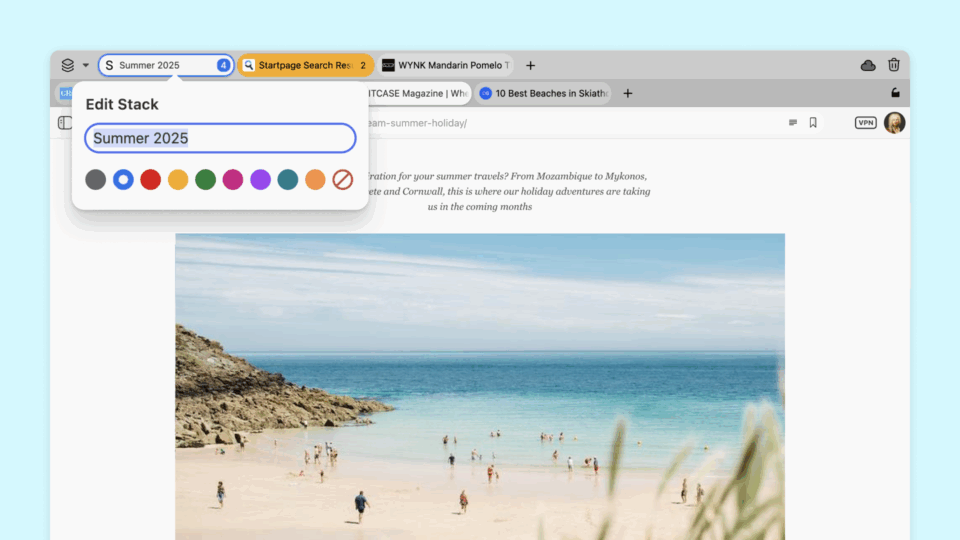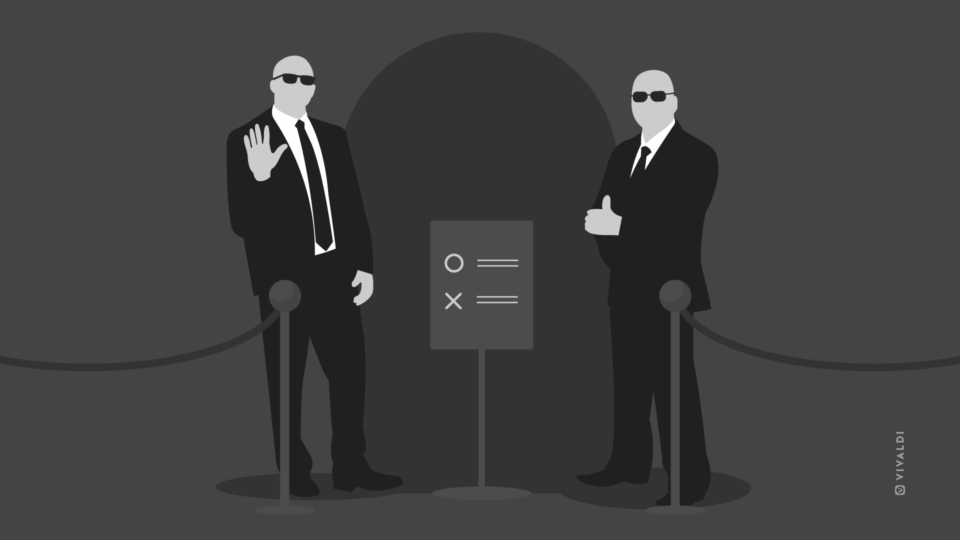
UPDATE
We have now enabled autoupdate for all Linux users. The “workarounds” listed below are no longer required!
The article below remains purely for historic interest.
What is happening?
Today we released Vivaldi 1.14, for all platforms. However we have intentionally held back the Linux repositories we use for updating users on .deb and .rpm based systems. If you use our official packages and want to upgrade right away, you can do so manually. Otherwise you should receive the update automatically, a few days later. If you are unsure, just wait and we will do everything to ensure a seamless browsing experience! ☺
Why is this needed?
We rely on a shared library, to allow for the playback of proprietary media (H.264/AAC) on sites like Netflix, Twitter and Facebook. This library is primarily intended for use with the distribution’s own copy of Chromium. Since some major distributions, like Ubuntu, have yet to upgrade to Chromium to version 64 (on which Vivaldi is based), the currently supplied library is too old. We expect them to update within the next couple of days and then we will immediately re-enable updates on Linux.
If you do not need proprietary media support and frequent sites that primarily work with open codecs, such as webm and ogv, you may wish to manually upgrade Vivaldi right away.
Workarounds to enable proprietary media support in 1.14
If you can’t wait to get your hands on Vivaldi 1.14 now and know you will need support for proprietary media, we have workarounds to get you going right away. Choose your distribution below and follow the relevant steps.
Ubuntu, Mint, Debian and derivatives
Start a Terminal window and copy & paste the following lines one by one, followed by “Enter” after each.
Fetch a suitable package:
wget http://security.ubuntu.com/ubuntu/pool/universe/c/chromium-browser/chromium-codecs-ffmpeg-extra_64.0.3282.119-0ubuntu1_`uname -m | sed 's/x86_64/amd64/;s/i.86/i386/'`.deb
Install the package you retreived:
sudo dpkg -i chromium-codecs-ffmpeg-extra_64.0.3282.119*.deb
After completing the workaround steps, you will need to restart Vivaldi. You can then test support by attempting to play the first video on this page.
Note: This updated library will cause crashes in the Ubuntu provided Chromium 63. If you use that browser as well, try the steps for other distributions (below) instead.
Other distributions
Start a Terminal window and copy & paste the following lines one by one, followed by “Enter” after each.
Fetch a suitable package:
wget http://security.ubuntu.com/ubuntu/pool/universe/c/chromium-browser/chromium-codecs-ffmpeg-extra_64.0.3282.119-0ubuntu1_`uname -m | sed 's/x86_64/amd64/;s/i.86/i386/'`.deb
Extract the required library:
ar p chromium-codecs-ffmpeg-extra_64.0.3282.119*.deb data.tar.xz | tar Jx ./usr/lib/chromium-browser/libffmpeg.so --strip 4
Install the required library:
install -Dm644 libffmpeg.so ~/.local/lib/vivaldi/libffmpeg.so
After completing the workaround steps, you will need to restart Vivaldi. You can then test support by attempting to play the first video on this page.


